
Somapacitan (Sogroya; Novo Nordisk) injection is indicated for the replacement of endogenous growth hormone in adults with growth hormone deficiency.

Somapacitan (Sogroya; Novo Nordisk) injection is indicated for the replacement of endogenous growth hormone in adults with growth hormone deficiency.
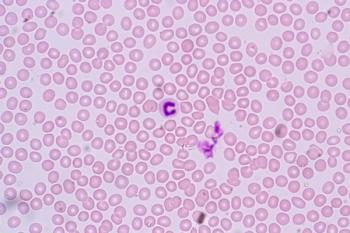
This high efficacy and low toxicity allow the combination treatment to provide a significant quality-of-life benefit to patients.

National Pharmacist Day is celebrated each year on January 12 and it is a chance to celebrate the incredible work that pharmacists do for their patients.
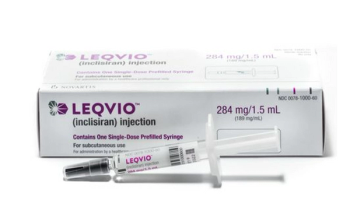
Inclisiran treats adults with heterozygous familial hypercholesterolemia or clinical atherosclerotic cardiovascular disease who require additional lowering of low-density lipoprotein cholesterol.

Compensation was a positive, while workload, management, and lack of work/life balance are the top reasons for dissatisfaction.

More aggressive competition and uptake could cause larger cuts, estimated at up to $124.5 billion between 2021 and 2025, according to the results of a RAND corporation analysis.

About 48% of individuals experienced a complete or partial response when treated with pembrolizumab, and about two-thirds also had a response that lasted more than 3 years.

Emicizumab (Hemlibra, Roche) is indicated for routine prophylaxis to prevent or reduce the frequency of bleeding episodes in adults and children with hemophilia A with or without factor VIII inhibitors.

Study results establish LAG-3 inhibition as therapeutically relevant third immune checkpoint pathway

The approval is based on efficacy and safety data from 2 positive phase 3 studies that evaluated a combined study population of 166 individuals, which represented the US population with Cushing syndrome.

Inhibiting the activity of group 3 innate lymphoid cells could serve as a new therapeutic approach for neurologic conditions.

The increasing economic burden of treatment may impact patient outcomes.

The goal of the financial counselor is to identify available funding for patient care in a timely manner, but the sheer number of resources and variables involved results in a long, tedious process.

Members, as well as health plans, pharmacy benefit managers, plan sponsors, and reinsurers want to know how to fund these expensive treatments to ensure positive outcomes.

Chemotherapy-induced nausea and vomiting can impact patients’ treatment outcomes.

Luciano Costa, MD, PhD, of the University of Alabama at Birmingham, discusses the next steps for clinical research assessing daratumumab, carfilzomib, lenalidomide, and dexamethasone in patients with newly diagnosed multiple myeloma.

More transparent drug pricing could improve patient care.

Luciano Costa, MD, PhD, of the University of Alabama at Birmingham, discusses how the results of the trial assessing daratumumab, carfilzomib, lenalidomide, and dexamethasone in patients with newly diagnosed multiple myeloma may impact the treatment landscape.
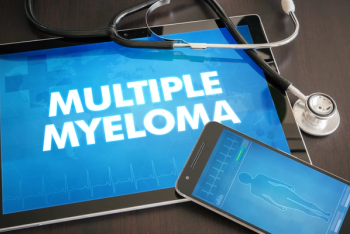
Luciano Costa, MD, PhD, of the University of Alabama at Birmingham, discusses the adverse events experienced by patients with newly diagnosed multiple myeloma who were administered daratumumab, carfilzomib, lenalidomide, and dexamethasone.

Jacob D. Soumerai, MD, of Harvard Medical School and Massachusetts General Hospital, discusses next steps in the research assessing zanubrutinib, obinutuzumab, and venetoclax in the treatment of previously untreated chronic lymphocytic leukemia.

Bladder cancer risk increases with age and is more common among men than women.

Luciano Costa, MD, PhD, of the University of Alabama at Birmingham, discusses the results for all of the trial endpoints assessing daratumumab, carfilzomib, lenalidomide, and dexamethasone for patients with newly diagnosed multiple myeloma.
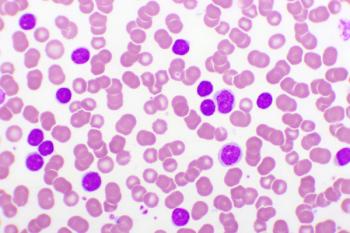
Jacob D. Soumerai, MD, of Harvard Medical School and Massachusetts General Hospital, discusses trial results showing the safety and efficacy of zanubrutinib, obinutuzumab, and venetoclax in the treatment of previously untreated chronic lymphocytic leukemia.
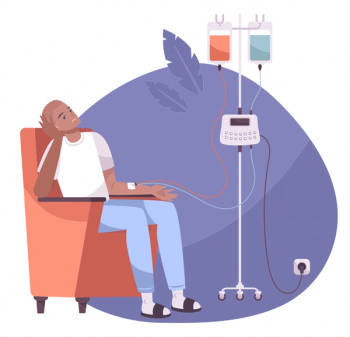
Modern technology is crucial to the provision of home infusions.

Symptoms of fibrous dysplasia include bone pain, swelling, bone deformity, bone and fractures.

Luciano Costa, MD, PhD, of the University of Alabama at Birmingham, discusses the primary endpoint in the trial assessing daratumumab, carfilzomib, lenalidomide, and dexamethasone in the treatment of patients with newly diagnosed multiple myeloma.
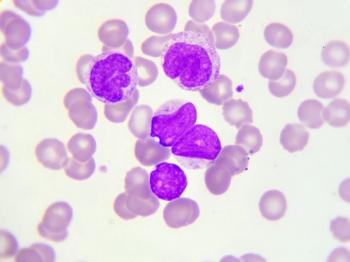
Jacob D. Soumerai, MD, of Harvard Medical School and Massachusetts General Hospital, discusses the adverse events experienced by patients with previously untreated chronic lymphocytic leukemia when treated with zanubrutinib, obinutuzumab, and venetoclax.

The cancer care system lags in comparison to other chronic health conditions in this key area.

The approval of Vyvgart is the first for a therapy designed to reduce pathogenic IgGs, an underlying driver of gMG.

Luciano Costa, MD, PhD, associate director for clinical research at the O’Neal Comprehensive Cancer Center at the University of Alabama at Birmingham, on the safety and efficacy of Dara-KRd in the treatment of patients with newly diagnosed multiple myeloma.